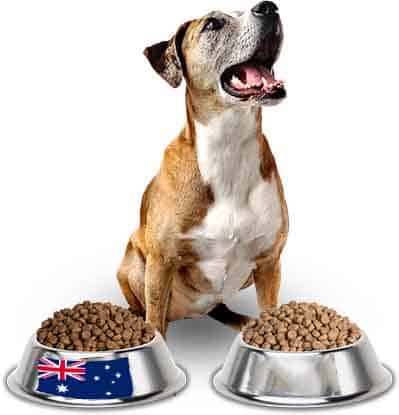Dog
10 Myths about Dog Food: Debunked!
Dog food is a hot topic right now. With all the dog food recalls and dog food myths, it’s hard to know what to believe when you’re looking at dog food options in the store or online. We’ve done some research for you so that you can make an informed decision about your dog’s diet. In this blog post, we’ll cover 10 myths about dog food and debunk each one with proven facts and examples from the reputed learned sources!
#1 Myth – You should feed the same dog food brands as your breeder or dog trainer recommends.
Fact – This is one of the most famous dog food myths out there! There are many reasons why this myth might exist such as:
- The pet owner has been using that brand for a long time and doesn’t want to switch foods now
- Many breeders and trainers have a contract with certain brands which states if you buy from them then you must feed their recommended brand/food type too.
So how do we debunk this? Well, who better to learn about what’s healthy for our furry friends than those responsible for keeping them healthy? Veterinarians have taken dog food nutrition and are up to date on the latest research. They know that dog food recipes change all the time, so what’s okay for your dog today may not be next year! And here’s a few more facts about vets:
- A study showed that over 50% of dogs were switched from their original diet within two years because something changed in their pet parent’s lifestyle or routine
- Another study found only 26% of dog owners could correctly identify common ingredients used in dog foods
Ideally, your breeder should provide at least 2 feeds that you can transition your dog from one to another. Remember ‘The Best Dog Food’ is what nourishes your dog from the inside out, optimising their overall health. i.e what goes into your dog matters more than what dog food brand you buy.
#2 Myth – All dog food brands are dog food, right?
Fact – Wrong! Just like human foods vary in their nutrients and ingredients depending on the culture or region they hail from. The same applies to dog food brands which can contain different recipes (and therefore nutrients) across the world.

For example, dog food in the UK will be stricter than dog food made in Thailand or China. The UK has strict regulations about pet foods because of their 2013 horsemeat scandal where dog and cat meat was sold as ‘beef’ to supermarkets! Other countries like Australia are subject to strict biosecurity laws to reduce the chances of dog food contamination with diseases such as BSE (Bovine Spongiform Encephalopathy, known as “Mad Cow” disease). However, it’s only voluntary in the US which means not all pet foods are held to those standards.
#3 Myth – Dogs need grains like rice or wheat
Fact– Grains aren’t bad but they don’t provide much nutritional value for our pets either. They’re very common ingredients in dog foods because they’re cheap and fillers. They don’t provide any nutrients that dogs need, but their inclusion can help bulk up dog foods to make it seem like you’re getting more for your money (not good if the price of pet food is one of your concerns).
In the wild, dogs would not find grains as the main part of their diet. What’s more important is that dog food addresses your dog’s specific needs so if you have an active pet then there are certain nutrients, they need to remain healthy and happy – this might be carbs or proteins! So focus on what matters most: knowing how much protein should go into a dog’s diet based on the type/breed of dog and age too. To compare with human foods again, people who exercise regularly (e.g athletes) will need different levels of calories (energy), carbohydrates etc than those who lead a sedentary lifestyle
#4 Myth – Home cooked dog food is better than commercial dog food brands
Fact – There are dog owners who want to feed their dog home-cooked food and that’s perfectly fine to do as long as it meets all dog food requirements and dog nutritional needs! They’ll cook up a hearty stew of carrots, peas, beef mince and brown rice with some added supplements like fish oil or glucosamine.

The problem with feeding your dog home-cooked dog food is the lack of knowledge surrounding what nutrients they need, how much protein or carbs they should eat (etc.) This can lead them to miss out on vital nutrients like calcium for example.
Also, remember dog food is made to meet your dog’s nutritional requirements which you can’t do if all you’re doing is cooking up a big pot of stew every night! Don’t take this advice as me saying never feed your dog anything other than commercial dog food brands because I’m not; there are some good quality home-made dog foods out there but it will require more effort and research on your part in order for you to ensure proper nutrition…you know best 🙂
#5 Myth – Dog Food has meat as its first ingredient
Fact– Yes! That’s a myth we’d love to bust immediately! Although most dog food brands will have some kind of animal protein at or near the top of their list, there may be many different types such as:
– Chicken meal
– Pork meal
– Lamb meal etc.
So just because chicken is listed first doesn’t mean it’s the most prominent protein in dog food. For example, dog foods which contain fish are likely to have ‘fish meal’ as their first ingredient because it’s much easier to absorb by our furry friends.
#6 Myth – Dogs have a shorter digestive tract than humans so they need food that is easily digestible and quick-to-finish

Fact – This dog food myth has been around for a long time, but it’s got no scientific backing! In fact, dog digestion is very different from our own: The stomach of a dog is more acidic than ours, which allows it to break down large pieces of meat and bone. It also keeps food in their stomach for longer periods so that acids can do their job on animal proteins, bones and fats; this explains why dogs live off eating only once or twice per day.
#7 Myth – Dogs can eat human food or table scraps
Fact– NO! Just because some of their wild canine cousins such as street dogs feed off human leftovers doesn’t mean that your dog should too. Some foods may be okay as treats or ‘human’ snacks for dogs (e.g carrots), but they definitely shouldn’t form a consistent part of any dog diet including those aimed at long term health, weight loss and senior dog health care etc…If that wasn’t enough to convince you then just take a look at these facts: Did you know that chocolate is poisonous to dogs? We all saw the repercussions when Prince William’s dog died after eating some leftovers which he’d brought up from dinner; there are many other stories like this too where people have tried giving their dog ‘just one’ treat but didn’t expect them to get sick or die on account of it. So, don’ risk your dog’s life
Therefore, it’s so important to buy the best dog food you possibly can afford, start with high-quality puppy food and move on to an adult maintenance formula before finally deciding which dog food brands are right for your dog’s specific needs.
#8 Myth – “You should switch your dog to adult formula as soon as they reach one year old.”
Fact – This is another myth that we hear often when it comes to our canine friends. The fact is puppies need dog food for puppies and adult dogs need dog food for adults. The biggest difference between a puppy and adult food is that the former needs more protein than adults. Puppy foods must have 22.5% of their calories derived from sources containing this essential amino acid, while maintenance diets only require 18%. (AAFCO standards)

Depends on the dog breed the genetic make-up the dog may need dog food for puppies or dog food for adults. Taking into account that dogs are considered to be adults after one year is just wrong when you know that this can vary from breed to breed and even dog to dog!
#9 Myth – dog food is made of “all-natural ingredients”
Fact – The dog food industry has come under a lot of scrutinies in recent times with many pet owners seeking out all-natural dog foods which are free from artificial additives and preservatives. However, the term ‘Natural’ doesn’t have any legal or regulatory definition; we can see that it’s an ambiguous dog food marketing tool used to attract more customers who want the best for their pets! So if you’re trying to avoid harmful chemicals like BHA (butylated hydroxyanisole) and BHT (butylated hydroxytoluene), then your only option is to read the ingredient list on every brand carefully…it may take some time but it’s worth it.
#10 Myth – “All dog food brands are equally good” or… “All for are the same”
Fact– This is definitely not true! It’s still possible to find some very poor-quality dog foods on the market today which rely heavily on cheap filler ingredients such as corn or wheat instead of high protein animal meats like chicken meal or lamb meal. That’s why it pays to do your research before making any purchases because you’ll be surprised at just how many different types there can be when we’re talking about pet food in general: puppy & kitten food dog food for adult dog’s dog food for senior dogs dog food for large breeds dog food for small breeds …the list goes on.
Remember that just because a brand is more expensive doesn’t mean it’s better quality, there are some really cheap brands out there that will do the job but if you can afford to pay extra then go ahead and get something like Black Hawk or Royal Canin who have built their name over decades of producing high-quality pet foods…you know they’re doing things right! Good luck with your search 🙂
It’s a sad reality that there are still so many myths and misconceptions about what you should be feeding your dog. Some of these old tales were spread as misinformation through bad sources, while others became fabrications created by companies trying to sell more products in an already saturated market- it can be hard knowing which one is true! If you’ve found any new information we missed or disagree with anything we said here, please let us know by commenting below! We would love to hear your thoughts on this topic that is so near and dear to our hearts












